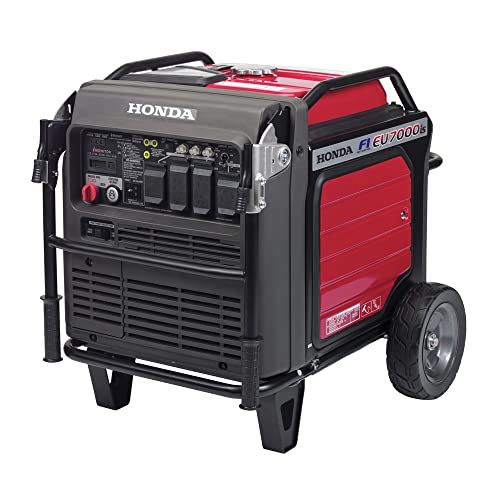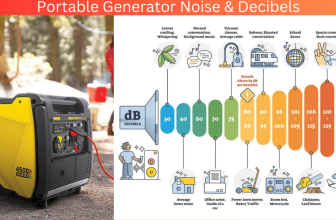Ever wondered How Loud is a Honda Generator? Well, wonder no more. In this in-depth article, we will review the decibel levels (dBA) of Honda Generators.
Generators can be a great addition to your home in the event of a power outage, but did you know that not all generators are created equal? In particular, Honda generators are known for being some of the quietest on the market. Wondering just how loud they are?
Keep reading to find out! We also discuss what decibels are and how they are measured. There is also an amazing image below this table that shows the loudness of certain items in our environment.
How Loud is a Honda Generator?
Honda EB6500 – 6,500 Watt Portable Industrial Generator
Honda EB10000 – 10,000 Watt Industrial Portable Generator
EB2200i – 2,200 Watt Industrial Inverter Generator
Honda EB5000 – 5000 Watt Industrial Portable Generator
Honda EM6500SX – 6,500 Watt Portable Generator
Honda EG4000 – 4000 Watt Portable Generator
Honda EU7000iS – 7,000 Watt Super quiet Inverter Generator
Honda EM5000SX – 5,000 Watt Portable Generator
Honda 665740 EU3200IANInverter Generator
Honda EU2200ITAN1 2200-Watt Inverter Generator
Honda 662220 EU2200i 2200 Watt Portable Inverter Generator
Honda EU1000i – 1000 Watt Inverter Generator
What is a decibel (dBA)?
A decibel is a unit of measurement used to quantify sound intensity. The decibel scale is logarithmic, which means that an increase of one decibel represents a tenfold increase in sound intensity.
For example, a sound with 10 decibels is ten times more intense than a sound with an intensity of 0 decibels. Conversely, a sound with an intensity of 20 decibels is 100 times more intense than a sound with an intensity of 0 decibels.
The decibel scale is thus useful for measuring both very small and very large changes in sound intensity. The human ear can detect sounds with intensities as low as 0 decibels, and loud sounds can have intensities exceeding 100 decibels.
Exposure to sounds with intensities above 85 decibels can cause permanent damage to the ear, so it is important to use caution when exposed to such sounds is unavoidable.
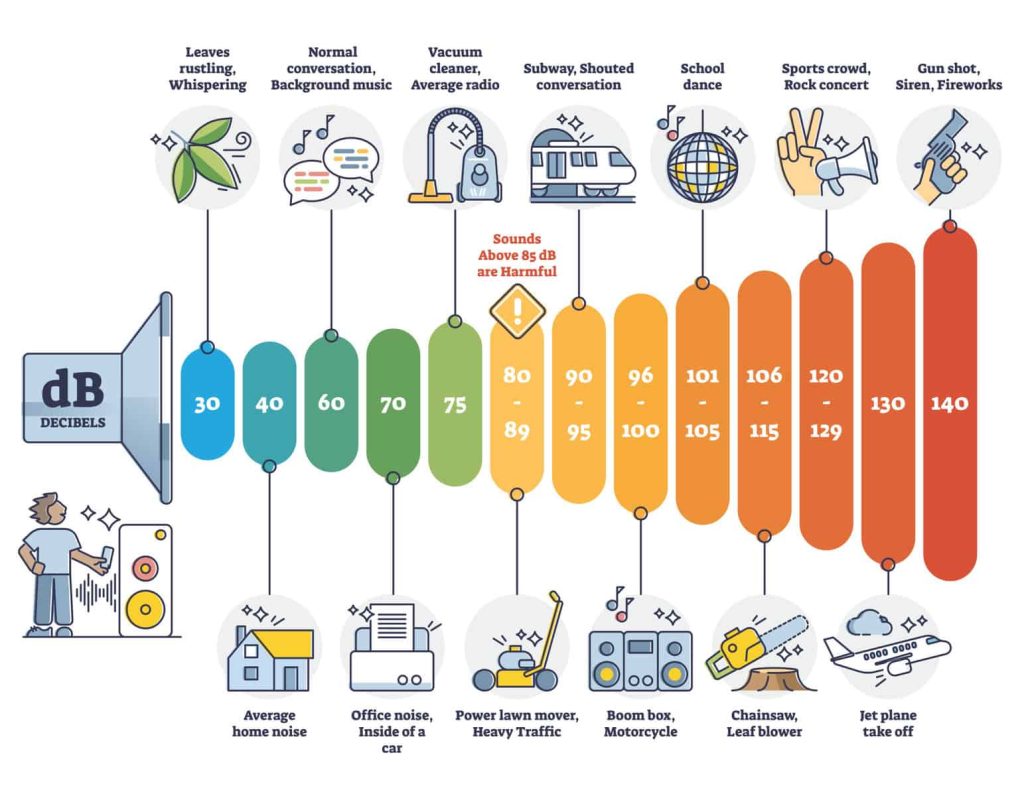
How are decibels (dBA) Measured?
The decibel level of a sound is measured using a special instrument called a decibel meter. This device picks up the sound waves and converts them into an electrical signal, which is then displayed on a dial or LCD screen.
The decibel level is read from this display. Decibel meters are commonly used in noise pollution studies, as they can help to measure the loudness of different sounds.
Honda Generator Noise Level Chart
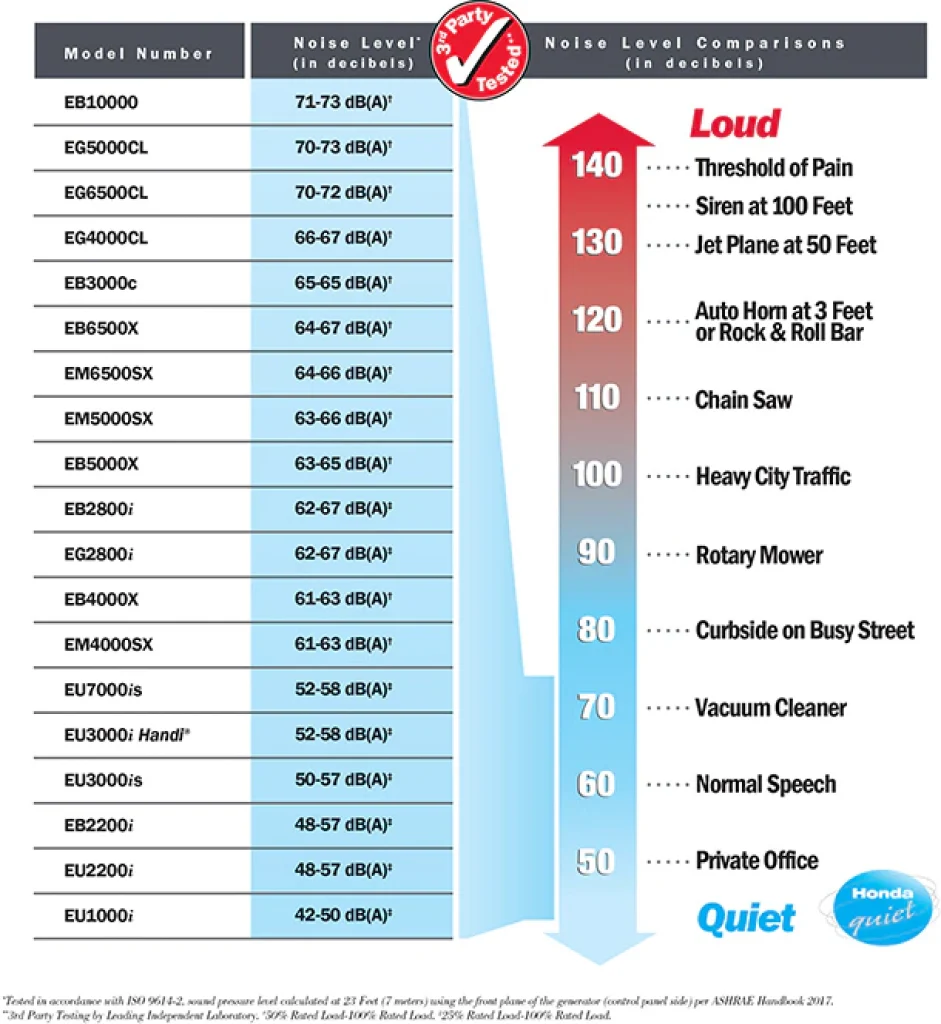
How to make your generator quiet?
I don’t know about you, but I love camping. It’s a great way to get away from the hustle and bustle of everyday life and enjoy some peace and quiet. But there’s one thing that can really ruin the peace and quiet: a generator.
If you’ve never had the pleasure of hearing one running, believe me, it’s not something you want to experience. So if you’re looking for a way to quiet your generator, read on! I’m going to share with you some tips that will help silence that noisy machine.
Point the exhaust pipes in an upward position
Any time you run a generator, there’s going to be some noise. But there are ways to reduce how much noise the generator makes, and one of the best ways is to position the exhaust pipes upward.
By doing this, you’re directing the noise upward instead of toward you, and that can make a big difference in how loud the generator seems.
Place the generator at least 20 feet away
As a general rule of thumb, you should try to keep the generator at least 20 feet away. The further away it is, the quieter it will be. Of course, how far you’ll need to place the generator will depend on the camping location.
In a smaller campground where there are lots of other campers, you’ll want to be considerate and place the generator as far away as possible so you don’t disturb anyone.
However, if you’re in a bigger campground with fewer people, you can afford to place the generator further away since there’s less of a chance of bothering anyone. Just be sure to keep an eye on the length of your power cord so you don’t accidentally place the generator too far away!

Avoid all hard surfaces
When figuring out how to quiet a generator, one thing to consider is the surface or location where you place it while it is running. A lot of the noise from the generator comes from vibration, so it’s important to place it on a surface that will amplify the noise.
If you want to dampen the generator noise, avoid all hard surfaces – also, don’t place it on an unstable surface, as this will increase the vibration and, subsequently, the noise. When outside, you can place the generator on the grass; this will absorb some of the noise from the rumbling generator.
You can also add some rubber pads or mats underneath the generator to reduce the vibration and noise. Carpets and rugs work well as anti-vibration pads. By following these tips, you can help reduce generator noise and make your experience using one more pleasant.
Add rubber feet to your generator
One of the simplest ways to quiet a generator is to put rubber feet on it to minimize vibration. If you can find rubber feet specifically made to prevent vibration, that’s even better. This is a great way to reduce noise, and it’s easy to do.
You can also use this method in combination with other methods to make your generator as quiet as possible. So if you’re looking for ways to reduce the noise of your generator, don’t forget about this simple solution.
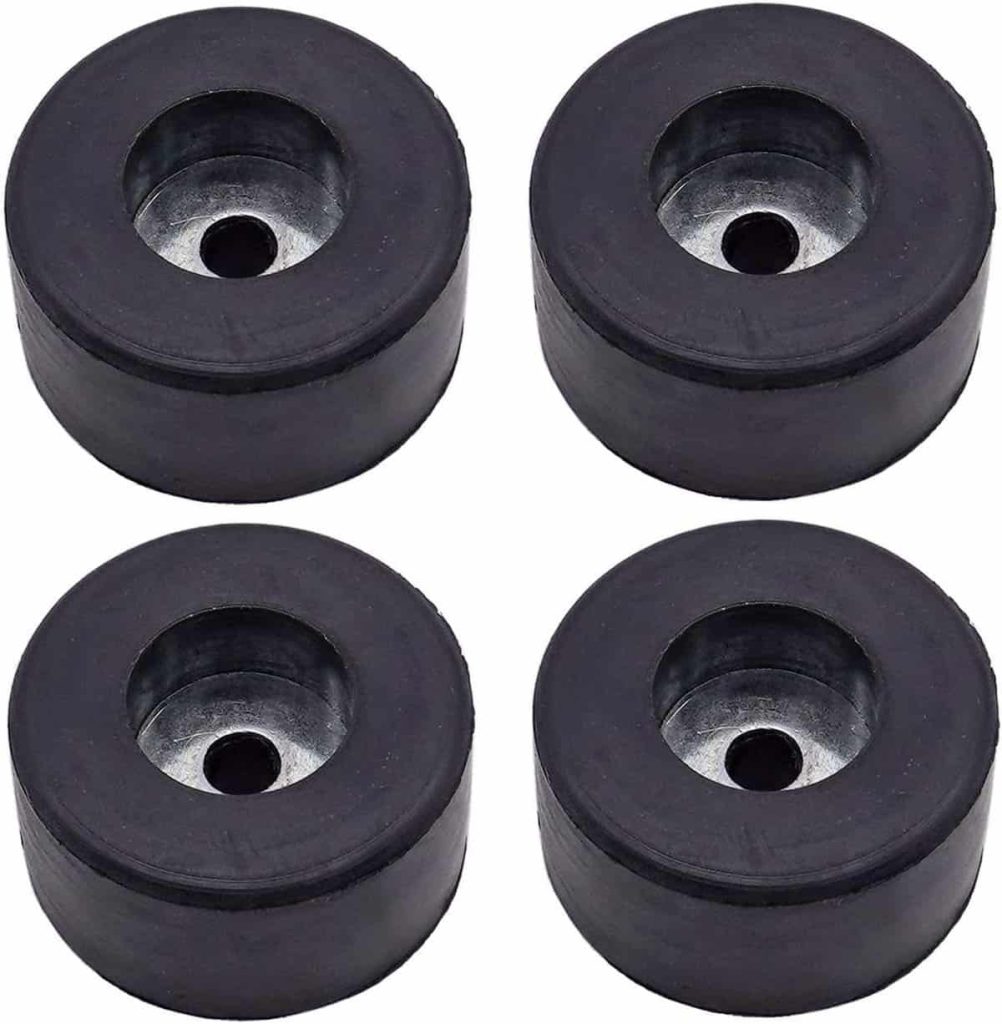
Get a non-flammable soundproof blanket
In your quest to reduce generator noise, don’t forget the soundproof blanket! You can cover your generator with plywood, drywall, and a blanket as long as there is enough ventilation. Sufficient airflow is necessary to avoid overheating, so make sure to give the fan and exhaust enough air ventilation.
When using a non-flammable soundproof blanket to reduce the noise from the generator, make sure to cut some holes for the fan and exhaust. Don’t cover the generator with an overly large blanket – there should be enough gap between the ground and the blanket to deflect the sound effectively. With a little bit of effort, you can easily quiet your generator without compromising safety.
Use a baffle box
Are you still struggling and learning how to quiet a generator? Well, you should try using a baffle box. Using a baffle box or an acoustic enclosure is very similar to using sound deflectors. It helps in reducing the noise coming from the generator.
The enclosure will contain sound waves and significantly reduce the noise decibels. Compared to using simple sound deflectors, baffle boxes are more compact. It is very useful for using on your RV generator. You can purchase a baffle box.
But, if you want to make it yourself, you will need a few pieces of 2×4 wood, L-brackets, foam sealer, and quiet board. Do not forget to add some holes in your baffle box for airflow. The heat will damage the generator, so make sure to put holes in the part where the exhaust is located.
Consider Replacing The Muffler
If you’re looking for ways to quiet your generator, one option is to replace the muffler. A larger muffler can help deflect sound from the generator, and by replacing an old or damaged muffler, you can reduce noise by up to 10-12 decibels.
Of course, finding the perfect muffler to fit your generator isn’t always easy – there are different types of generators and exhaust pipe sizes to consider. That’s why it’s always a good idea to speak with an expert when you’re ready to replace your generator’s muffler. They can help you find the right size and type of muffler for your needs and make sure it’s installed correctly.
With a little bit of effort, you can greatly reduce the amount of noise your generator makes – making it more pleasant for both you and your neighbors.
Conclusion
Conclusion paragraph: If you’re in the market for a generator, Honda is definitely a brand you should consider. Not only are their generators some of the most reliable on the market, but they also happen to be super quiet.
In fact, many of them are even quieter than a conversation! So if you’re looking for something that won’t disturb your neighbors or keep you up at night, Honda has got you covered. Check out their lineup of generators and see for yourself how quiet they really are.
How Loud Is A Honda 2200 Generator?
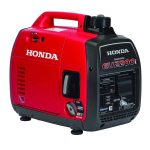
48 to 57 dBA Less noise than normal conversation
How Loud Is A Honda 3000 Generator?
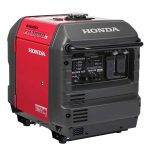
50- 57 dBA Less noise than normal conversation







